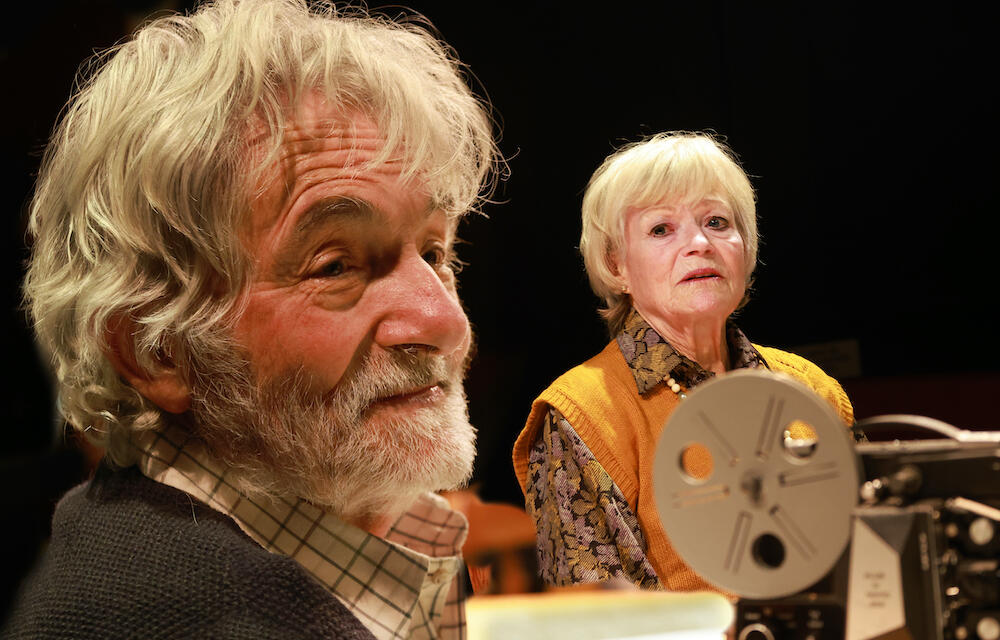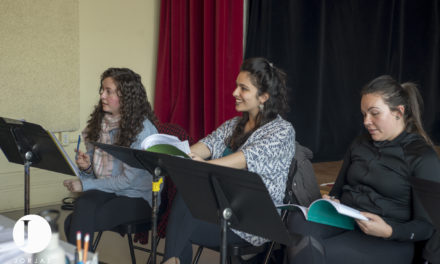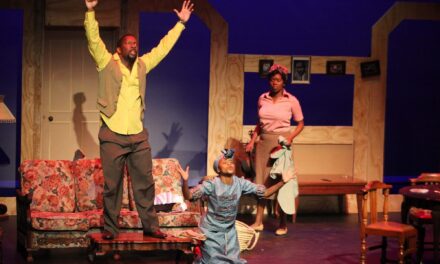The memory play is a theatrical genre which allows the playwright to locate their characters in the here and now while at the same time travelling back in time. It is the form adopted by Bjørg Vik, a Norwegian writer and journalist who died in 2018, for her short play, The Journey to Venice. This contemporary Norwegian classic won the Ibsen Prize in 1992 and was televised a year later. Although it has often been staged in northern Europe, the playwright and her other work are scarcely known in the UK. Once again, Neil McPherson’s Finborough Theatre has made a discovery — and presents a rare gem.
The play is a tender study of old age: Oscar and Edith Tellmann have been married for decades and are now in their 80s. They have spent their lives working in the humanities — he was a teacher of geography and she gave piano lessons — and travelling both in their Norwegian homeland and abroad. Now the frailties of old age mean that they have difficulty moving around, and need a home help to do domestic cleaning and other chores. Their reduced circumstances also mean that Edith has been forced to sell some of their precious possessions, such as first editions, objects in gold and paintings, in order to supplement their income.
Despite the occasional memory lapse, both Oscar and Edith have clear recollections of happy times in the past. So they spend some time each day reenacting the trips they took when they were young. On this day, we see them put on their hiking gear, travel to the mountains by train in the morning, complete with packed lunch, and then to Venice in the afternoon. This idea of travelling without going out, journeys of the imagination, reminded me of Jean des Esseintes, the reclusive aesthete of Joris-Karl Huysmans’s 1884 novel, À rebours (Against Nature), who travels by reading about distant places. But while he is a solitary figure, the Tellmanns are a couple.
Vik shows their relationship with a light touch. Edith sees Oscar as a bit of a rascal, while he is proud of having taught her about culture and social mores. Occasionally, she gets angry with his roving eye and he is annoyed by her jealousies. These moments are emotional sparks in a life that is otherwise calm. Together, their meagre existence is lived in a messy home, which is populated by stray cats which they have named after composers and operas such as Mozart and Tosca. Every day they enjoy rereading the classics of European literature, such as Dostoyevsky’s The Idiot, Cervantes’s Don Quixote and even DH Lawrence’s Lady Chatterley’s Lover.
On the day we meet them they have two visitors: a new home help, Vivian, who arrives drunk and brightly chatty, and a much-needed plumber, Christopher, who comes to fix a problem with their sink. Gradually, they involve both Vivian and Christopher in their fantasy of the trip to Venice, serving up some spaghetti and Chianti, and evoking the rain-washed square of San Marco, with its restaurants and waiters. While they generously share their food and wine, they also use the visitors to project their desires: Oscar ogles Vivian, an attractive young woman, while Edith sees Christopher as the grown up image of her lost son, Alexander, who died aged six days.
So the play is a meditation on loss, which is both the loss of a child and the loss of the ability to live an active life as death comes closer. Vik’s writing — in Janet Garton’s clear translation — has an appealingly sweet quality, and makes its points about old age without excessive emphasis. That said, Vik’s view of marriage seems oddly traditional in its gender politics for a writer who was an active feminist and the play, which runs for barely 70 minutes, is rather slight. Compared to the work of British women writers of the 1990s it is also rather too polite and restrained for its own good.
Nevertheless, there is plenty to enjoy in Wiebke Green’s subtle production, for Anarchy Division. The shabby room, which includes cat poo and a dirty carpet, as well as piles of dusty bills and old books, is by designer Kit Hinchcliffe, and the couple’s past travels are illustrated by projections in the style of 1960s Super 8 film. The acting, by Tim Hardy and Annabel Leventon as the Tellmanns, and Charlotte Beaumont and Nathan Welsh as their visitors, is excellent, and there are several beautiful moments of tender humanity. But while the play implicitly challenges our rather insular view of theatre, it does not in itself demonstrate an alternative aesthetic to the great tradition of British naturalism.
This post was written by the author in their personal capacity.The opinions expressed in this article are the author’s own and do not reflect the view of The Theatre Times, their staff or collaborators.
This post was written by Aleks Sierz.
The views expressed here belong to the author and do not necessarily reflect our views and opinions.


















